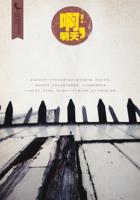Their whole policy appeared to be dictated by a passionate spirit of reaction. . . The oppressors of the parson had been the oppressors of the squire. The sequestrator who had driven the one from his parsonage had driven the other from his manor-house. Both had been branded with the same charge of malignity. Both had suffered together, and the new Parliament was resolved that both should triumph together."The feeling thus eloquently expressed goes far to explain the harshness which Bunyan experienced at the hands of the administrators of justice at the crisis of his life at which we have now arrived. Those before whom he was successively arraigned belonged to this very class, which, having suffered most severely during the Puritan usurpation, was least likely to show consideration to a leading teacher of the Puritan body. Nor were reasons wanting to justify their severity. The circumstances of the times were critical. The public mind was still in an excitable state, agitated by the wild schemes of political and religious enthusiasts plotting to destroy the whole existing framework both of Church and State, and set up their own chimerical fabric. We cannot be surprised that, as Southey has said, after all the nation had suffered from fanatical zeal, "The government, rendered suspicious by the constant sense of danger, was led as much by fear as by resentment to seventies which are explained by the necessities of self-defence," and which the nervous apprehensions of the nation not only condoned, but incited. Already Churchmen in Wales had been taking the law into their own hands, and manifesting their orthodoxy by harrying Quakers and Nonconformists. In the May and June of this year, we hear of sectaries being taken from their beds and haled to prison, and brought manacled to the Quarter Sessions and committed to loathsome dungeons. Matters had advanced since then. The Church had returned in its full power and privileges together with the monarchy, and everything went back into its old groove. Every Act passed for the disestablishment and disendowment of the Church was declared a dead letter. Those of the ejected incumbents who remained alive entered again into their parsonages, and occupied their pulpits as of old; the surviving bishops returned to their sees; and the whole existing statute law regarding the Church revived from its suspended animation. No new enactment was required to punish Nonconformists and to silence their ministers; though, to the disgrace of the nation and its parliament, many new ones were subsequently passed, with ever-increasing disabilities. The various Acts of Elizabeth supplied all that was needed. Under these Acts all who refused to attend public worship in their parish churches were subject to fines;while those who resorted to conventicles were to be imprisoned till they made their submissions; if at the end of three months they refused to submit they were to be banished the realm, and if they returned from banishment, without permission of the Crown, they were liable to execution as felons. This long-disused sword was now drawn from its rusty sheath to strike terror into the hearts of Nonconformists. It did not prove very effectual. All the true-hearted men preferred to suffer rather than yield in so sacred a cause. Bunyan was one of the earliest of these, as he proved one of the staunchest.
Early in October, 1660, the country magistrates meeting in Bedford issued an order for the public reading of the Liturgy of the Church of England. Such an order Bunyan would not regard as concerning him. Anyhow he would not give obeying it a thought. One of the things we least like in Bunyan is the feeling he exhibits towards the Book of Common Prayer. To him it was an accursed thing, the badge and token of a persecuting party, a relic of popery which he exhorted his adherents to "take heed that they touched not" if they would be "steadfast in the faith of Jesus Christ." Nothing could be further from his thoughts than to give any heed to the magistrates' order to go to church and pray "after the form of men's inventions."The time for testing Bunyan's resolution was now near at hand.















